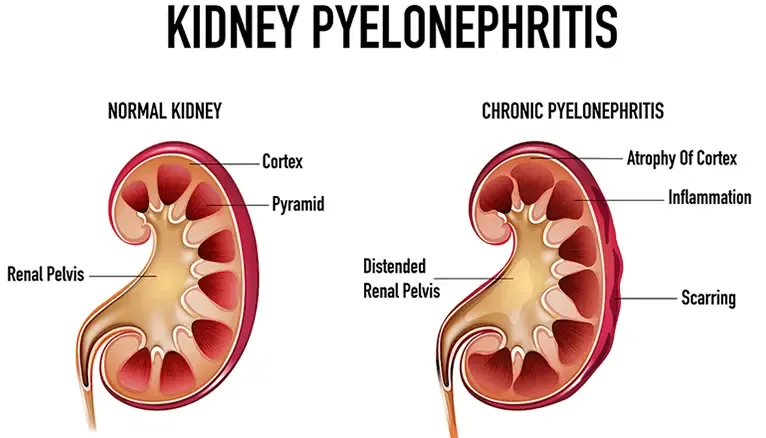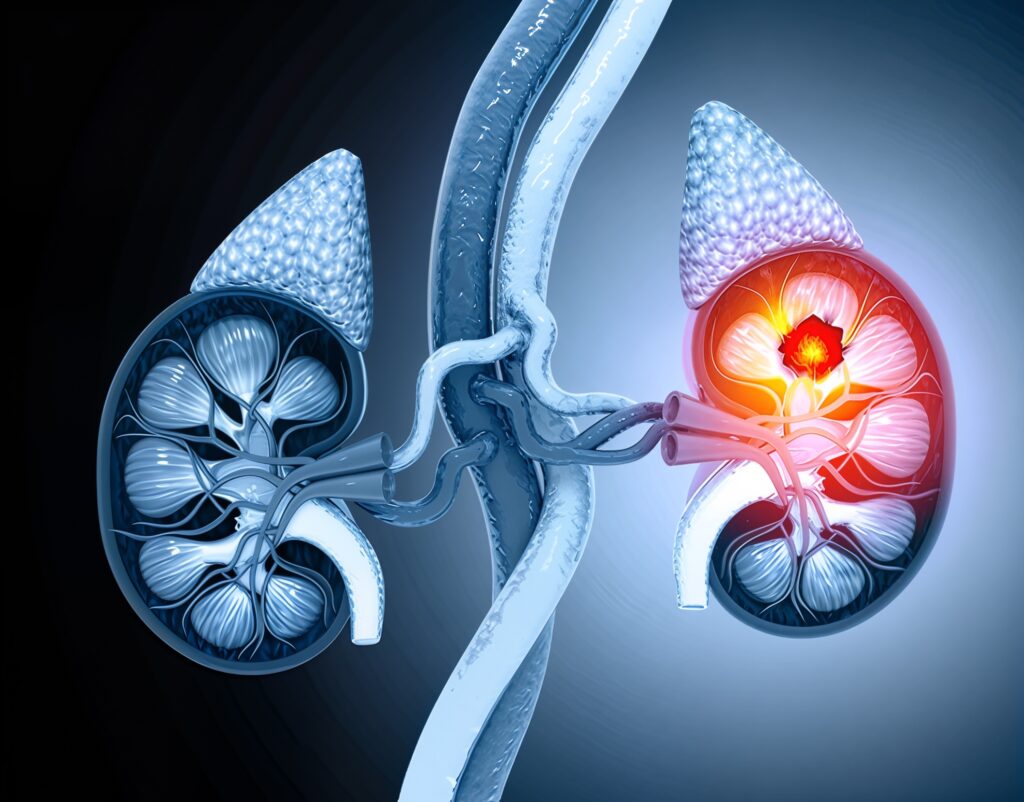- Amman, King Hussain Park, Jordan
- +(962) 000-0000
- info@curafile.com
Pyelonephritis
- Home
- Pyelonephritis
A kidney infection is a type of urinary tract infection that often begins in your bladder and moves into one or both of your kidneys. In rare cases, kidney infections can lead to serious health problems. Early treatment prevents most complications.
Symptoms of a kidney infection may include fever; pain in your back, side, or groin; and painful urination. A kidney infection is most often caused by bacteria that infect your bladder and move into one or both of your kidneys.

Health care professionals use your medical history, a physical exam, and lab tests to diagnose a kidney infection. Your health care professional may also use imaging tests to help diagnose a kidney infection.
Health care professionals may treat your kidney infection with antibiotics. Be sure to finish your medicine, even if you start to feel better. Small changes to daily habits may help to prevent kidney infections.
Experts don’t think that diet and nutrition can prevent or treat kidney infections. Drinking lots of liquids helps to prevent or relieve kidney infections. Ask your health care professional how much liquid is right for you.
NIDDK conducts and supports clinical trials in many diseases and conditions, including urologic diseases. The trials look to find new ways to prevent, detect, or treat disease and improve quality of life.
The urinary tract is the body’s drainage system for removing urine, which is composed of wastes and extra fluid. For normal urination to occur, all body parts in the urinary tract need to work together in the correct order.
Your kidneys keep the makeup of your blood stable, which lets your body work well. Each day, the two kidneys filter blood to remove waste and extra fluid, which leaves the body as urine.

Related Topics
Good Habits You Should Know
Bad Habits You Should Know
-
Find a clinic near you
-
Call for an appointment!
-
Feel free to message us!
About Us
Curafile is the biggest Healthcare Curated Network Globally that serves citizens, service providers in B2C and B2B directions.
- Al Hussain Business Park
Amman, Jordan
Additional Links
- test October 20, 2025
- Hello world! October 7, 2025
- Many doctors use wrong test to diagnose kids food allergies February 12, 2017
- Rising cost of diabetes care concerns patients and doctors January 15, 2017
- Can breakfast help keep us thin? Nutrition science is tricky January 5, 2017

